Films that show a CHILDHOOD NIGHTMARE
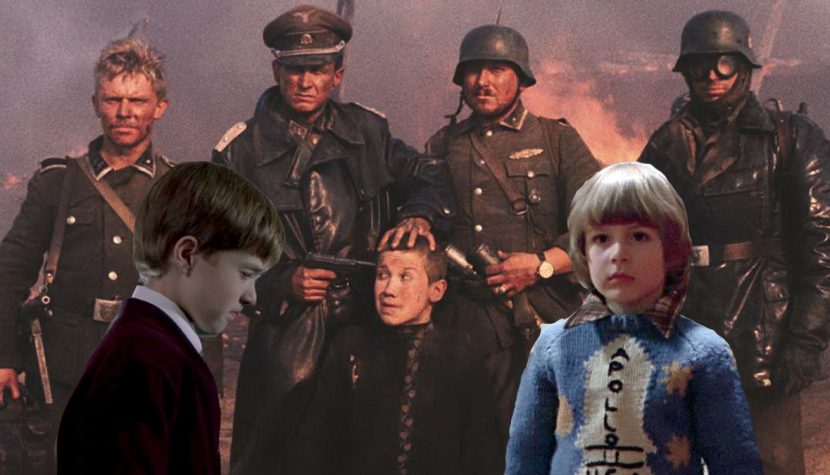
Childhood is one of the most important, if not the most important stage in a person’s life. Growing up and maturing, we discover the world, we learn its rules through the prism of imagination and dreams, we learn our own sensations, feelings and desires. Reality then is perceived differently, more colorfully, much less mundane, we are looking for role models and support, we want security, warmth, affection and acceptance. Childhood has a significant impact on our adult life, it crystallizes our personality, shapes our sensitivity and morality for years. Unfortunately, the childhood of underage film heroes in the following description is, to put it mildly, far from ideal. Confrontation of a child’s expectations with brutal, even cruel realities, where love and care for a defenceless, innocent and very young man is pushed out by the ruthless world of adults, irrational and atavistic desires and instincts, not fully understood by the minor protagonist – this means at best disillusionment about the goodness and justice of the world in which they grew up.
Chronological order.
WARNING: SPOILERS!
Viva la muerte!
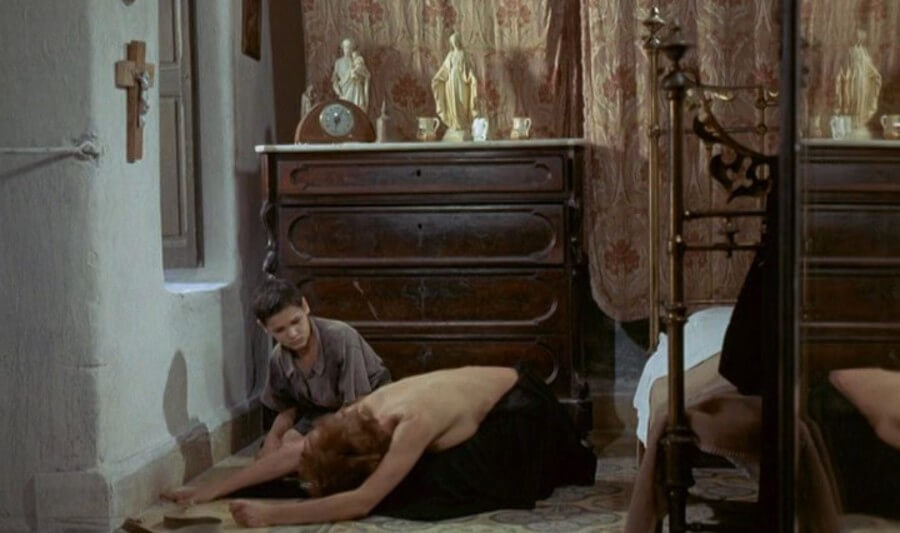
Fernando Arrabal, a Spanish novelist and playwright, spent his childhood years during the regime of General Franco, which sparked a civil war in the whole country. The artist translated his experiences and related reflections into literary works in the form of commentary and manifestations, and above all, he described his own observations and associations from the period when his father was sentenced to death, only to finally disappear without a trace after the sentence was changed. The novella Baal in Babylon and its film version Viva la muerte! made in the spirit of surrealism by Alejandro Jodorowski, with whom Arrabal has collaborated many times. The Spaniard’s film work, created in the aesthetics of shock and grotesque, literal in its allegory, can be glaringly incompetent and archaic in terms of the moving image, and at the same time attracting attention with its bizarreness and naturalism. The boy who is the main character of the film is the equivalent of the author himself, his fantasies become more and more twisted and nihilistic against the backdrop of war. From the child’s perspective, the mother who takes care of him after losing his father appears as a traitor who gives herself to the Frankists and defecates on her husband, pays homage to her priest by butchering (a bloody, authentic scene!) a cow. The child’s sensitivity is stigmatized and ends with an escape into his own world reminiscent of dreams and mirages as a sign of opposition to adaptation and adaptation to the conditions and circumstances in which the child came to build his own perception of reality.
The Shining
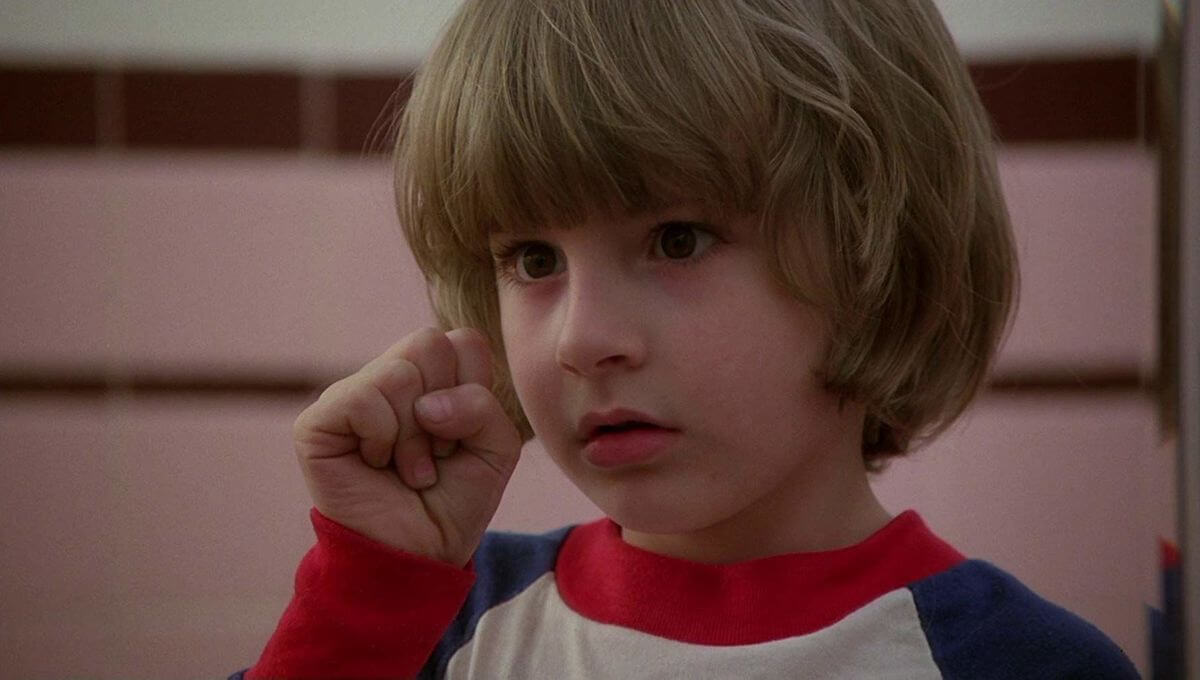
Danny Torrance, son of Jack and Wendy with telepathic abilities to communicate over long distances and see past and future events, did not want to go with his parents to the Overlook Hotel plagued by nightmare visions about him. On the spot, it quickly turns out that the fear did not have the proverbial big eyes, but it was justified. After talking to the cook, the boy becomes convinced that the hotel hides dark secrets, such as room 237, which should be avoided. Danny encounters ghosts of murdered twin sisters, sees a flood of blood from an elevator, notices negative changes in his father’s behavior – all suggesting that evil is in the air, circulating the hotel and will soon make its presence felt. He is not mistaken, he will soon have to run away with his mother from the madness of Jacek, who, snared by ghosts, intends to kill his loved ones. The baby’s greatest fears, which were prophesied in his daydreams, became reality. The consequences in adult life can be seen in the continuation of Stanley Kubrick’s famous horror film Doctor Sleep, where the role of Danny was taken by Ewan McGregor.
Christiane F. - Wir Kinder vom Bahnhof Zoo

Based on the real experiences of a young drug addict Christiane Felscherinow, a book was first created, and then a film based on it under the same title. It tells the story of a twelve-year-old girl unable to find herself after her parents split up. Living in a block of flats in Berlin, he feels empty and hopeless. At a club party, she meets a boy who draws her into an increasingly destructive drug addiction. In order to get money for the plot, Christiane starts prostitution. Over time, realizing that her existence is reaching the bottom, she intends to fight addiction with her beloved. Before Requiem for a Dream recalled the obvious moral that drugs are a one-way ticket, it was Uli Edel’s film that warned against the use of banned substances, showing in a raw and real way the process of becoming addicted without any dyes or embellishments, almost with a documentary shot. Moreover, the main victim is an underage girl willing to degrade herself and sink as low as possible in order to take heroin, which was destroying both her and her partner.
Come and See
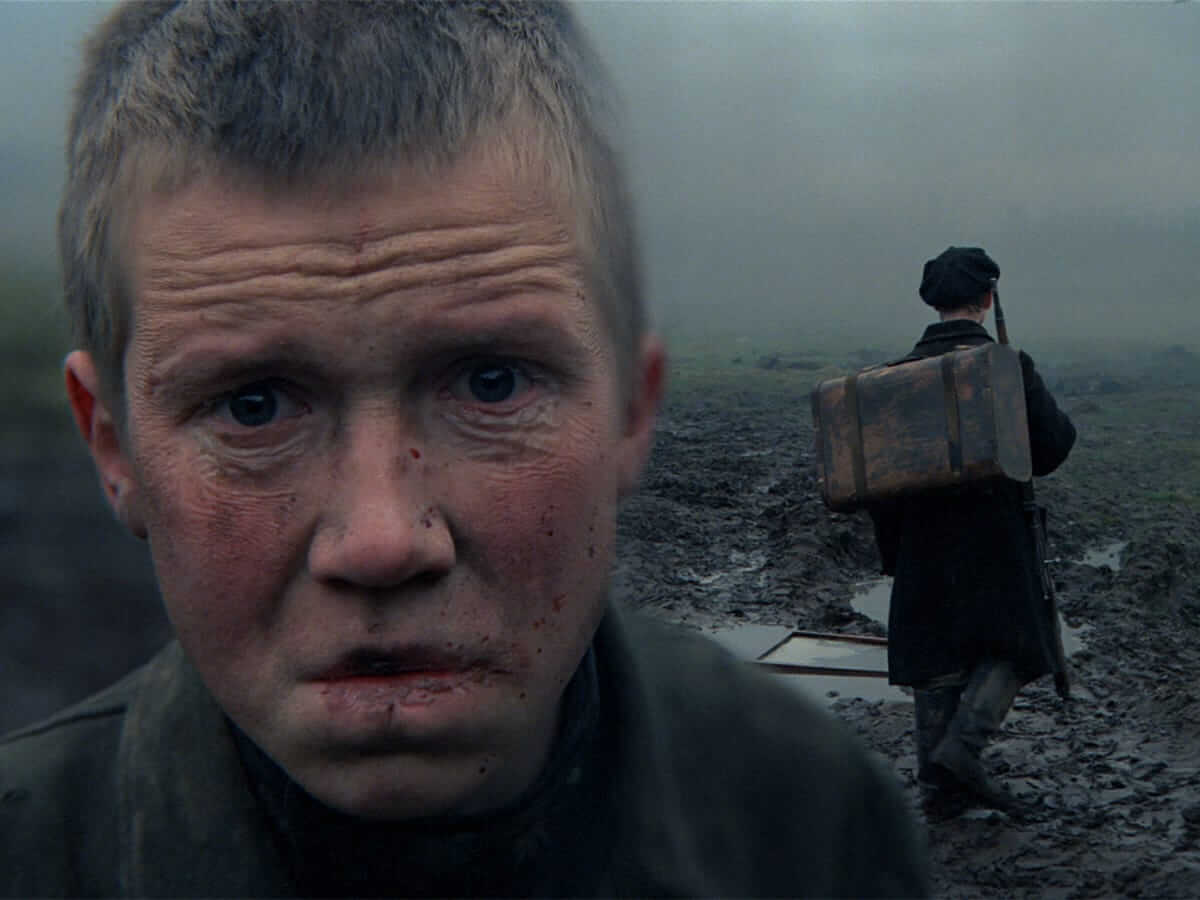
The Soviet picture is considered the strongest anti-war film from Europe. A very heavy genre weight, crude narrative, the occupation apocalypse seen through the eyes of a boy, symbolic realism for the characteristic signs of Elem Klimow’s work called a masterpiece by, for example, Polish director Wojciech Smarzowski, Polish author Jakub Zulczyk or Vaclav Marhoul (the screenwriter of The Painted Bird). The leading character is Flora who wants to get into the partisan detachment. In the meantime, the Nazis are trying to take over the Belarusian lands, mass exterminating the local population. Flora returns to his village, where the German occupiers have already passed and killed his entire family. From that moment on, the boy is on his own, experiencing the hell of war. He witnesses the genocide of the villagers, who are locked in a barn and burned alive. He miraculously comes out of it unscathed, finally joins the partisans and takes revenge with them on the captured Germans. However, his soul and psyche are changed forever, his childhood has been irretrievably lost, adulthood has come too quickly, too brutally.
Reflecting Skin
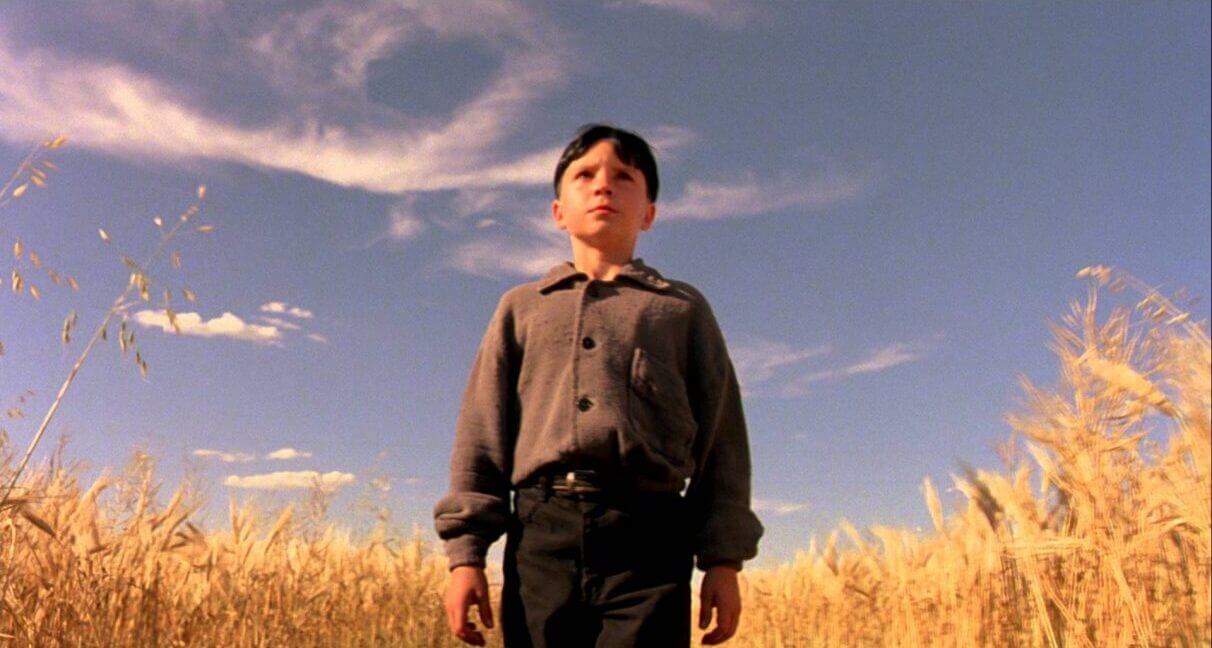
Early Peter Weir meets David Lynch from the Twin Peaks period, that’s how you could describe a little-known, but certainly intriguing and idiosyncratic film by Philip Ridley. The story of Reflecting Skin takes place on a farm in Idaho, where Seth, a boy full of imagination and ideas, is brought up. However, this rural province is not an oasis of peace and idyll, as it may seem. Away from the urban agglomeration, the seemingly calm and quiet haven, with vast wheat fields, blue sky and a small farm, really resembles a tangle of vipers hidden under picturesque views. The morality, normality and decency of its inhabitants leave much to be desired, and the mysterious deaths of Seth’s colleagues raise questions about the culprits and motives. In addition, a woman, a lonely widow living in the area, is suspected by the boy of vampirism. Over time, after his father’s suicide, it is not entirely certain what the main character thinks and what is true. Is the woman killing the boy’s friends or is the driver of the black Volga the culprit? What will Brother Seth’s love for the widow lead to? Ridley’s painting shows the loneliness and self-interpretation of a child in an isolated society, unexplored phenomena and human behaviors too abstract and incomprehensible to the boy’s sensibilities, secrets that should not see the light of day, proving at the same time that the American Gothic countryside can be a place as ominous as the most forbidden districts of the metropolis (remember Canicule with Lee Marvin?).
Sleepers
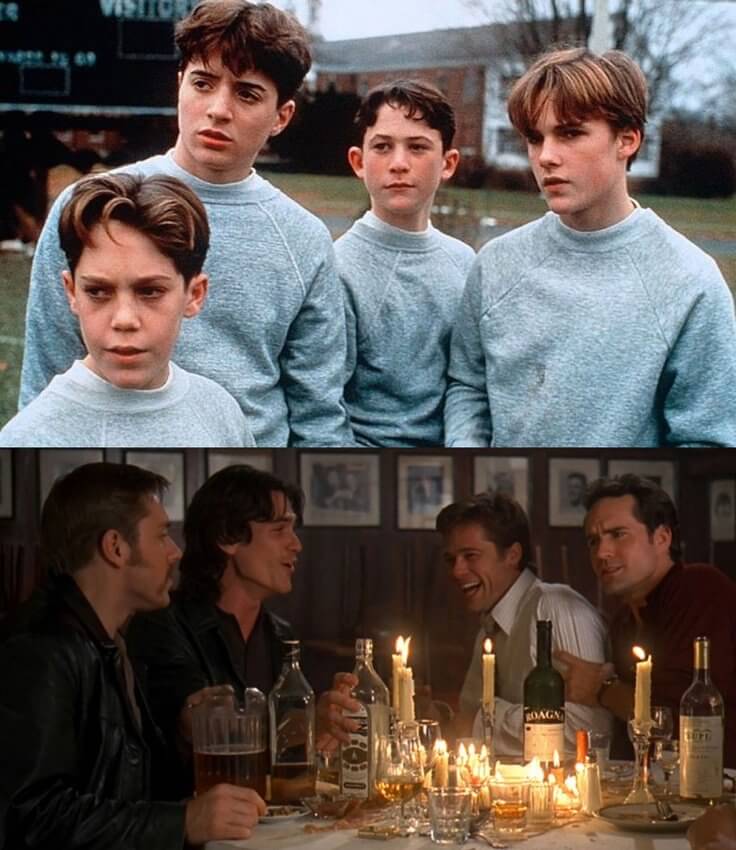
One mistake, prank and wrong decision can affect the rest of your life. Barry Levison’s film portrays a group of friends living in one of the Italian neighborhoods in the USA. A group of boys likes to get into trouble often, killing boredom and time, but a prank on a hot dog seller ends tragically. For involuntary manslaughter, the boys end up in a correctional facility, where they are to serve their sentence and undergo social rehabilitation. Unfortunately, in the facility they are tormented and sexually abused by the guard and his companions. Trauma stays with them until the end, even in adulthood, it defines their further choices. Two of them turn to crime, killing the former abuser, but even the others, despite the fact that they seem human, still cannot get rid of the trauma. They unite in the common cause of the lawsuit, but the dramatic experiences of childhood cannot be erased, even though justice is served.
The Sixth Sense
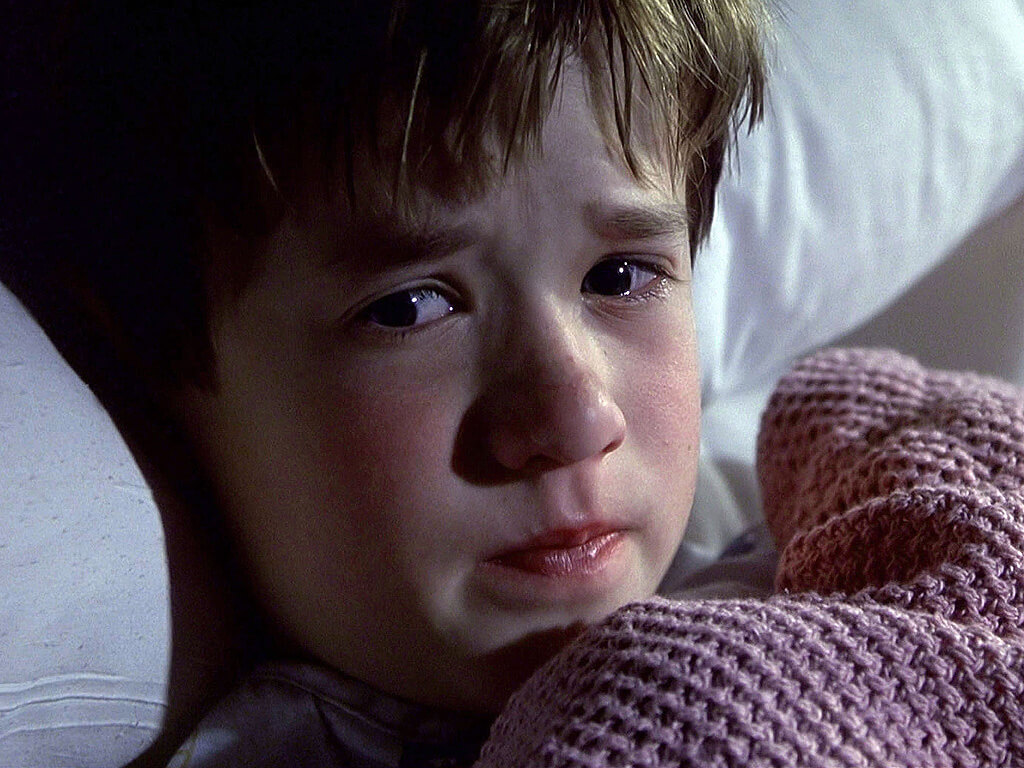
“I see dead people”. M. Night Shyamalan’s most acclaimed and successful film reinvigorated the trend for metaphysical thrillers with an unexpected twist, where the main character is a minor hero struggling with supernatural properties that are beyond him. Cole, a sensitive and intelligent but somewhat lost boy, has a gift that becomes a torment for him. He can contact ghosts, lost souls who cannot find peace after death, so they haunt a boy who is a link between the world of the living and the dead. He is supported by a respected psychologist, who in a way replaces his father, while Cole’s mother cannot cope with taking care of her son. With Malcolm’s help, his ward begins to understand how to use his skills to compensate for the wrongs done, sort out unfinished business, help himself and his mother come to terms with fate and loss and trying to live from the beginning without dwelling on the past while appreciating the present.
Room

The protagonists of this drama are a woman and her son, Jack, imprisoned by the father of a five-year-old and the woman’s partner in a shed isolated from social life. Jack has never seen the outside world, his mother convinces him that the real one exists only on television. When the father loses his job, the woman, fearing his criminal plans, intends to make her child aware that reality does not end with their titular room. The boy does not believe his mother, but to save him, she tricks him into simulating a fever, and when that fails, the boy pretends to be dead so that his father drags him outside and carries him wrapped in a carpet. The plan works, they regain their freedom, and the man is arrested. Now they have to adapt to a new life, which comes with great difficulty. The boy even considers returning to his “room”, he cannot cope with the new reality, everything is foreign and demanding to him. It’s only when his mother nearly takes her own life that Jack is ready to start exploring and understanding the new, real world.
The Painted Bird
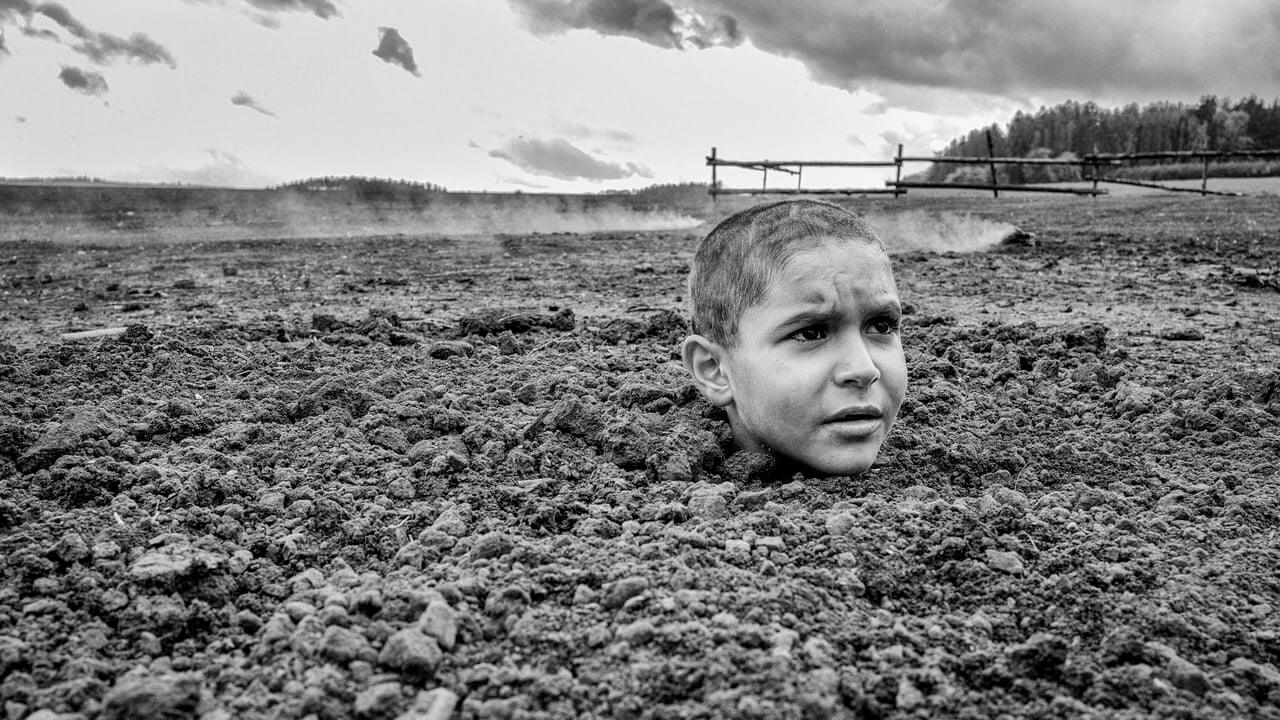
The book by the controversial writer stuns with detailed descriptions of violence and rape, wartime terror on the body and soul of a child. The Czech director allowed himself a faithful adaptation, but he managed to subject the brutal moments to poetic aesthetics and avoid anti-Polish messages. A nameless boy, considered to be a Jew and a Gypsy, fights for survival during World War II, encounters hatred and cruelty at the mercy of his guardians. What he experiences on his own skin and sees with his own eyes gradually suppresses his childlike attitude and faith in a better world and people. He becomes more and more indifferent and, undergoing desensitization, is willing to cause harm himself, no longer turning the other cheek.

